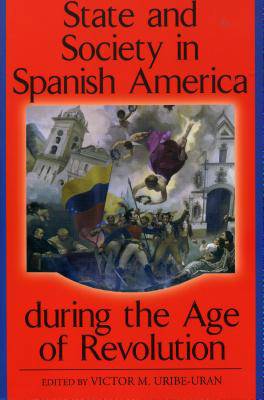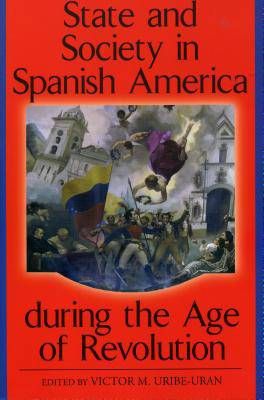
- Afhalen na 1 uur in een winkel met voorraad
- Gratis thuislevering in België vanaf € 30
- Ruim aanbod met 7 miljoen producten
- Afhalen na 1 uur in een winkel met voorraad
- Gratis thuislevering in België vanaf € 30
- Ruim aanbod met 7 miljoen producten
Zoeken
State and Society in Spanish America During the Age of Revolution
€ 138,45
+ 276 punten
Omschrijving
State and Society in Spanish America during the Age of Revolution calls into question the orthodox split of Latin American history into colonial and modern, arguing that this split obscures significant economic, social, and even political continuities from 1780 to 1850. In addition, the book argues that the colonial-modern division makes it difficult to appraise historical changes in a comprehensive way. The book covers an unconventional period-1750 to 1850-and looks at the continuities over this longer, more comprehensive timespan. The essays discuss late colonial and postcolonial developments in gender, racial, class, and cultural relations across Latin America and in specific regions, including Mexico, Colombia, Argentina, and Chile. By bridging these two eras and looking at the 'Age of Democratic Revolution' as a whole, the book allows readers to see the coming of Latin America's struggle for independence from Spain and Portugal and the changes after independence.
Written by established Latin American scholars as well as up-and-coming historians, these essays are published in this volume for the first time. This book is ideal for courses on Latin American history, including colonial history, national history, and the 'Age of Revolution.'
Specificaties
Betrokkenen
- Uitgeverij:
Inhoud
- Aantal bladzijden:
- 261
- Taal:
- Engels
- Reeks:
Eigenschappen
- Productcode (EAN):
- 9780842028738
- Verschijningsdatum:
- 1/02/2001
- Uitvoering:
- Hardcover
- Formaat:
- Genaaid
- Afmetingen:
- 158 mm x 235 mm
- Gewicht:
- 644 g

Alleen bij Standaard Boekhandel
+ 276 punten op je klantenkaart van Standaard Boekhandel
Beoordelingen
We publiceren alleen reviews die voldoen aan de voorwaarden voor reviews. Bekijk onze voorwaarden voor reviews.










